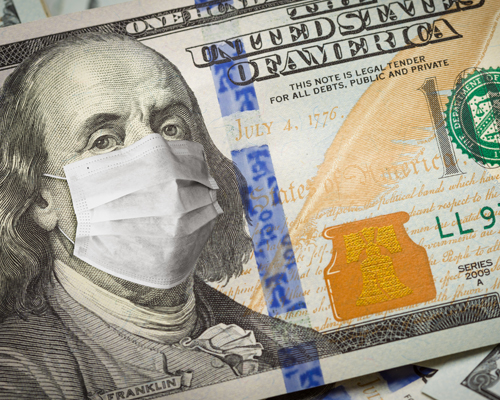The CARES Act, a third-round stimulus package that offers $2.2 trillion in emergency relief with a focus on individuals and small businesses, was passed unanimously by the Senate on 3/25, the House on 3/27, and signed into law by President Trump. Here are the details.
No industry-specific relief
On an American Bus Association (ABA) webinar on 3/25, President & CEO Peter Pantuso informed members that there was no specific relief for the motorcoach industry in this latest round of federal aid, although he has heard from Senator Pat Toomey’s office about including the industry in the next round. So far, there has been relief for airlines, public transit, and AMTRAK, although Pantuso noted that “motorcoaches move more people in two weeks than Amtrak does all year,” according to data from the ABA Foundation. The travel-related associations are working together and will be ramping up efforts to keep the industry top of mind to members of Congress, especially when the Senate goes on recess. The fight isn’t over; make sure you are continuing to contact your representatives! Click to find contact information for your Senator or Congressperson.

Small business relief
The package did put an emphasis on small businesses, especially regarding payroll and access to emergency funding. The NLA works with Cornerstone Government Affairs, which provided the following:
- $350 billion for new Paycheck Protection Program, which would provide small businesses eight weeks of cash-flow assistance. The portion of the loan used for payroll support (employee salaries, paid sick or medical leave, and other overhead like mortgage interest, rent, and utility payments) would be forgiven if employees and salaries are retained.
- Defines eligibility as businesses, nonprofits, veterans’ organizations, and Tribal businesses up to 500 employees and includes self-employed, independent contractors, and sole proprietors.
- Additionally, $17 billion for SBA to cover six months of payments for small businesses with existing SBA loans.
- SBA loans are expected to be processed through private lenders and the income threshold is expected to be relaxed, defining small business by employees rather than income, according to the ABA. Click here for an info guide and checklist.
- Maximum loan amount is $10,000,000 or four times the average total monthly payments by the applicant for payroll, mortgage or tent, and debt obligations incurred during the one-year period before the date of the loan, whichever is less, according to Matt Daus of Windels Marx.
- Delays payment of employer payroll taxes allowing employers and self-employed individuals to defer payment of the employer share of the social security tax they otherwise are responsible for paying to the federal government with respect to their employees. The provision requires that the deferred employment tax be paid over the following two years, with half of the amount required to be paid by December 31, 2021 and the other half by December 31, 2022, according to NPR.
Unemployment
An additional $600 per week in federal funds would go to workers collecting unemployment, which is on top of their state benefits, for four months. There is also language to extend the period a person can collect for an additional 13 weeks above their state benefits (currently ranges per state from 12 to 28 weeks), which will be paid with federal monies.
Housing
The package temporarily bans rental evictions and foreclosures of those with federally backed mortgages.
According to CNN:
- Those facing a financial hardship from coronavirus shall be given a forbearance on a federally backed mortgage loan of up to 60 days, which can be extended for four periods of 30 days each. The legislation says that servicers of federally backed mortgage loans may not begin the foreclosure process for 60 days from March 18.
- The bill also does not allow fees, penalties or additional interest to be charged as a result of delayed payments.
- Those with federally backed mortgage loans who have tenants would also not be allowed to evict tenants solely for failure to pay rent for a 120-day period, and they may not charge fees or penalties to tenants for failing to pay rent.
Stimulus checks
Those with AGIs of $75,000 or less (based off of 2018 or 2019 tax returns) will receive a one-time payment of $1,200; couples filing jointly up to $150,000 AGI will receive $2,400. It’s tiered through individual AGIs and caps at $99,000 and $198,000 for couples. Tax credits for children and under is $500 per child, although there are income restrictions on this, too.
If you have time to kill, you can read all 880 glorious pages of the Senate bill here.
[03.26.20]

